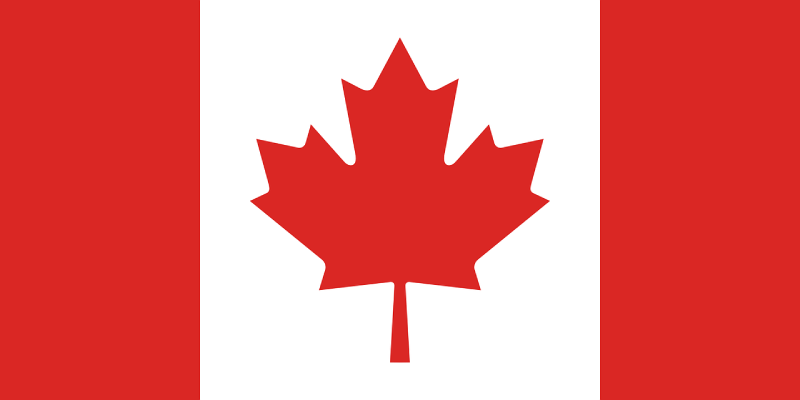Travel to Canada during COVID-19: restrictions & requirements
Some of Canada’s travel restrictions are being eased. Fully vaccinated travellers will soon be exempt from certain entry requirements.
All other foreign citizens remain subject to restrictions. This page contains information about pre-departure testing, quarantine, and ArriveCAN to travel to Canada during COVID-19.
Is Canada open for travel?
Canada is about to open to some international travellers. One of the required documents to enter to Canada during COVID-19 is the ArriveCAN for Canada, which you can obtain in the following link:
Apply ArriveCAN for CanadaFrom August 9, 2021, fully vaccinated American citizens and permanent residents will be able to enter for discretionary travel. Montreal, Toronto, Calgary, and Vancouver airports are accepting international flights.
It is expected that fully vaccinated travellers from all other countries will be allowed to enter from September 7, 2021.
People who have not been vaccinated remain subject to Canada’s COVID-19 travel restrictions, as explained below.
Who can travel to Canada right now?
Foreigners in the following categories may be able to enter Canada during the coronavirus restrictions:
- Immediate/extended family members of Canadian citizens
- People visiting for compassionate reasons
- Travellers taking part in an International Single-Sport Event (ISSE)
- Other essential reasons
The entry requirements for people in each of these categories are explained in more detail below.
Family members of Canadian citizens can travel to Canada
Family members who travel to Canada during COVID-19 must stay for at least 15 days and have a 14-day quarantine plan.
Extended family members also need written authorization from Immigration, Refugees, and Citizenship Canada (IRCC).
Travelling to Canada for compassionate reasons
To go to Canada for compassionate reasons, foreign nationals must have authorization from the Public Health Agency of Canada (PHAC).
Compassionate reasons to visit Canada include:
- Supporting a critically ill person
- Providing essential medical care
- Being present during the last moments of a relative
- Attending a funeral
Foreigners who receive authorization from PHAC may also require a Canada eTA or visitor visa to enter the country.
Foreigners taking part in an International Single-Sport Event (ISSE)
High-performance amateur athletes and people providing support may be able to travel to Canada for an ISSE.
To be eligible for the exemptions, the National Sport Organization needs authorization from the Deputy Minister of Canadian Heritage (PCH).
Amateur athletes also need the relevant visa or eTA for their trip to Canada.
Other foreigners who can travel to Canada right now
- Arriving directly from the United States for essential purposes
- Exempt from restrictions for essential purposes
- Foreign workers on temporary contracts
- Some international students
- Passengers in transit
- Diplomats and their immediate family
- Air and marine crew
- People providing essential services
- Travellers whose visit is in Canada’s national interest
- People providing medical deliveries
Canada COVID-19 entry requirements
Foreign citizens who are granted permission to travel to Canada during COVID-19 must meet special entry requirements.
Submit travel and contact information through ArriveCAN

Travel health certificates such as ArriveCAN Canada help limit infection rates. Contact information can be used to get in touch with passengers on the same flight as someone who later tests positive for COVID-19.
Canada’s COVID-19 entry form is an essential entry requirement for all passengers.
COVID-19 testing requirements to travel to Canada
All passengers need a negative COVID-19 test taken no more than 72 hours before departure.
Children under the age of 5 and passengers with a positive test result between 15 and 90 days before departure are exempt.
Arrivals must also have a COVID-19 test on days 1 and 8 unless they hold a recovery certificate. People with a vaccination certificate are exempt from the day 8 test.
Quarantine rules on arrival in Canada
Travellers arriving in Canada may be required to quarantine for 14 days.
Passengers with a COVID-19 certificate showing they were fully vaccinated at least 14 days before arrival are exempt from quarantine.
Travel restriction exemptions for vaccinated travellers
Travellers who can prove they have been fully vaccinated against COVID-19 are exempt from some entry requirements.
Quarantine, hotel stopover, and day-8 testing may not apply to passengers who:
- Are eligible to travel to Canada now
- Do not have COVID-19 symptoms
- Meet all entry requirements, including submitting the ArriveCAN form
Foreign nationals are considered fully vaccinated if they received the last dose of an approved COVID-19 vaccine at least 14 days before departure.
Which COVID-19 vaccines are accepted in Canada?
To be eligible for the requirement exemptions, visitors must have been received one of the following vaccines:
- Pfizer-BioNTech
- Moderna
- AstraZeneca/Covishield
- Janssen/Johnson & Johnson
Proof of vaccination must be uploaded digitally when submitting information through ArriveCAN Canada.
Vaccinated travellers still need a pre-departure test and should have a quarantine plan ready in case they are not granted the exemption.
There are no exemptions from the requirements for partially vaccinated individuals.
All Canada’s entry restrictions are subject to change. Travellers must have all the latest information when planning a trip to Canada during COVID-19.